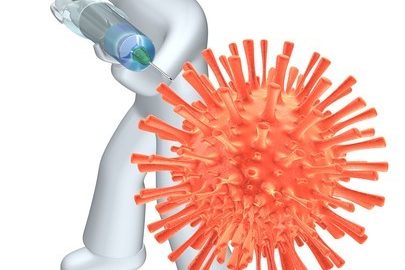The online headline startled me….Fish Oil inhibits chemotherapy, claim researchers. I am a fan of Omega-3 fish oils (also known as n-3 fatty acids) and have never told my patients on chemotherapy to stop eating fish or taking fish oil supplements. This September article received a lot of attention in the scientific press. I was concerned that I might be harming my patients with bad advice.
The study, published in the reputable journal “Cancer Cell,” was under the esoteric title “Mesenchymal Stem Cells Induce Resistance to Chemotherapy through the Release of Platinum-Induced Fatty Acids.” It did indeed show that certain cells in mice given the chemotherapy drug cisplatin, release tiny amounts of fatty acids. These fatty acids seem to block the chemotherapy’s anticancer affect. The study concludes this might be one way cancers are resistant to chemotherapy. In interviews, the lead researcher, Professor Emile Voest, suggested cancer patients avoid “these products.”
Please note several key points. First, no “fish oils” were ever given. The Omega-3 fatty acids were produced by the cells of the mice that received the chemotherapy. Therefore, we have no idea what supplements would do, even if they contain the same fatty acids. Second, this is a limited experiment, looking at the actions of one chemotherapy drug in one experimental cancer. Third, and very important, it was in mice. Whether this phenomenon occurs in man and in what circumstance is unknown.
What do we know about Omega-3 Fish Oils? Studies of Greenland Intuit Eskimos show very low rates of heart disease and the apparent association with consuming large amounts of fish. Studies indicate that the omega-3 polyunsaturated fatty acids EPA and DHA are the active substances in this diet.
Laboratory and human studies indicate that fish oil reduces the risk of death of coronary disease, especially in individuals with heart disease or those at increased risk. In 2004 the FDA gave “qualified health claim” status to Omega-3s regarding prevention of cardiac disease. Whether this affect is because of decreased atherosclerosis (hardening of the arteries) or because Omega-3s are mild blood thinners, is unclear.
This benefit seems to occur with limited side effects. Commercial fish oils are gathered from small fish at the bottom of the food chain, therefore the risk of iodine toxicity is low.
The data on the reduction of other diseases by fish oil is less clear, but encouraging. Studies have suggested an increased affect of chemotherapy on cancer in those with high serum fatty acid levels. N-3 fatty acids have shown possible anti-cancer effects in breast, colon and prostate cancer (although a recent study suggested more aggressive prostate cancer, when it did occur). Cancer patients taking fish oil supplements may have reduced weight loss and maintain muscle mass.
Very importantly, N-3 supplementation appears to decrease the risk and rate of Alzheimer’s disease. On the other hand, stroke risk does not appear affected. Heart failure may be improved, but research is ongoing. It is unclear whether heart beat irregularities are improved.
For now, I will watch the research, but I am not going to change my recommendation. All adults should eat at least two servings a week of oily fish (anchovy, catfish, cod, salmon, sardine, scallops, shrimp, tuna). If you cannot (or will not), then take 1000mg of a fish oil supplement, daily.
If you are receiving treatment for cancer, always mention any supplement you are taking to your Oncologist. Based on this study the doctor may want you to stop, if he is giving you cisplatin. However, for now, there is no reason to be concerned about this health giving oil from the deep and cancer therapy.







4 Comments